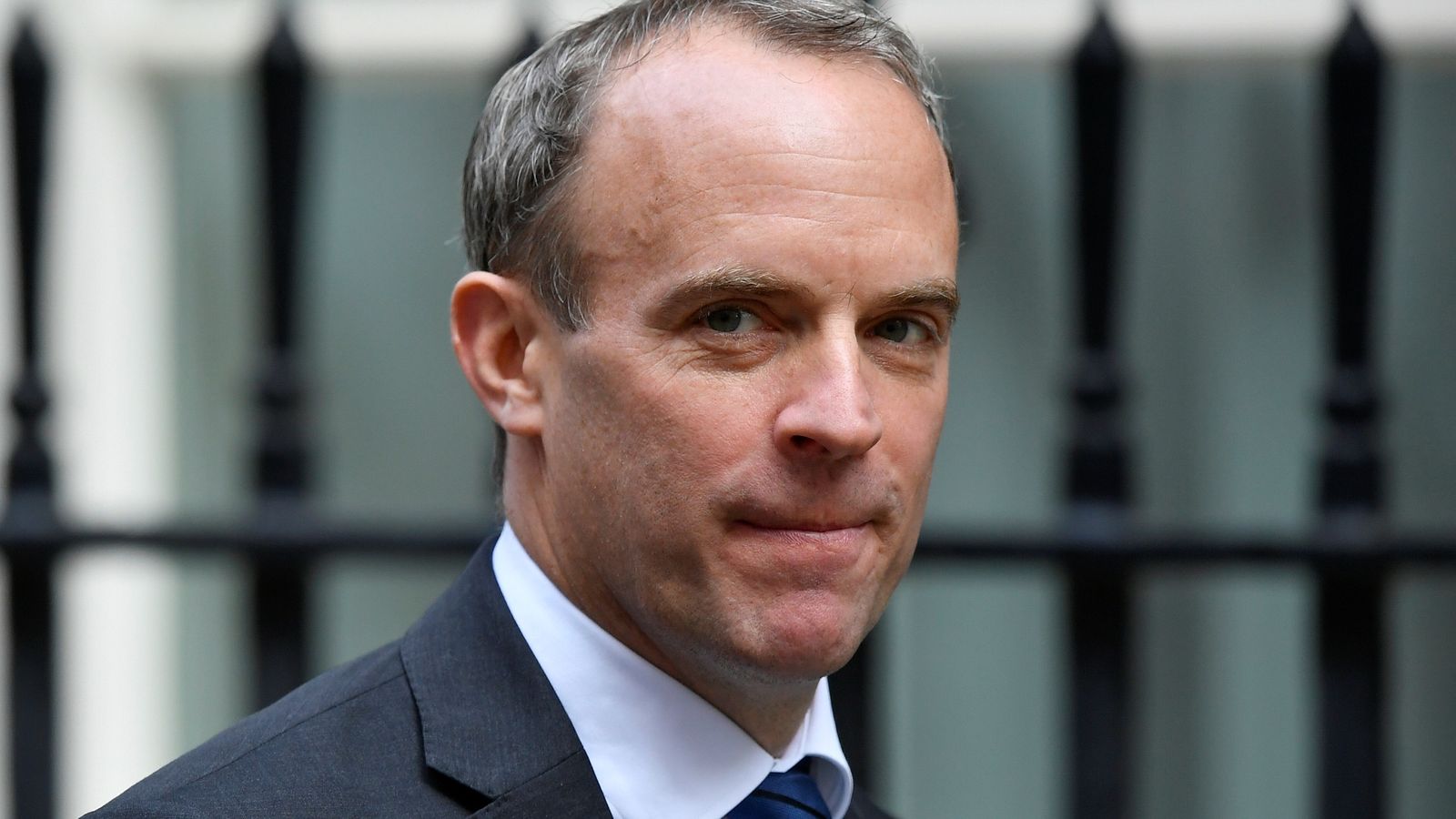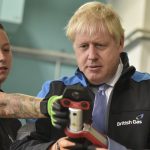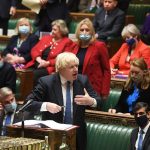A “worrying” number of children and teenagers are being recruited to terrorist groups during the coronavirus lockdown, the foreign secretary has told MPs.
Dominic Raab was addressing the Commons about the UK’s fight against Islamic State.
He said the UK was tackling the terror group’s propaganda “head on”, but warned it was “still able to carry out lethal attacks”.
Please use Chrome browser for a more accessible video player
IS remains the UK’s “most significant terrorist threat” at home and abroad, the foreign secretary told MPs.
“This is a critical moment,” Mr Raab said.
“Yes, Daesh’s [another name for IS] brand has weakened – it remains, nonetheless, globally recognised.
“In December 2020, the UK Counter-Terrorism Referral Unit saw a 7% rise in the volume of terrorist content online and we can see a worrying rise in the proportion of children and teenagers that are now being arrested for terrorism offences.
“And it was Assistant Commissioner Neil Basu of the Met [Metropolitan Police] who described lockdown and the accessibility of terrorist content online as a perfect storm because terrorists have digital access to those who are probably the most susceptible to extremist narratives.
“So we are tackling Daesh’s propaganda head on and I am proud the FCDO [Foreign, Commonwealth and Development Office] leads on this work on behalf of the global coalition.”
Please use Chrome browser for a more accessible video player
The foreign secretary said the government had “carried out a range of targeted and effective cyber operations”.
MPs were told that there are an estimated 10,000 IS fighters still at large in Iraq and Syria, with Mr Raab saying: “Support for Daesh still lingers on in many communities.
“At the same time, while Iraq and Syria remain Daesh’s primary focus, it also presents a clear and growing global threat.
“So diminishing Daesh’s ability to operate in other parts of the world, including Africa and Asia, must also be a priority for the international community. We must not allow it to take roots elsewhere.
“I can report to the House that on 11 February a coalition surveillance aircraft located a number of Daesh fighters – they were occupying two dispersed encampments on the banks of the Tharthar River, west of the city of Bayji [Iraq].
“Two UK Typhoon FGR4s conducted careful checks of the surrounding area for civilians before carrying out simultaneous attacks using two Paveway IV guided bombs against each group. The bombs hit their targets within the encampments, eliminating the terrorist threat.”
The foreign secretary’s update to parliament came as it was revealed that police and the intelligence services had thwarted three terror attacks since the COVID-19 pandemic began.
Please use Chrome browser for a more accessible video player
Latest Home Office figures show that the number of arrests for terrorism-related activity fell by 34% in 2020, the lowest level in almost a decade.
However, police said the number of plots disrupted has risen to 28 since March 2017.
Labour’s shadow foreign secretary Lisa Nandy said she was “deeply troubled” to hear that young people were being targeted by IS propaganda.
She asked the foreign secretary: “Does [Mr Raab] agree that it is appalling that British children in the UK are being groomed to join Daesh? And can he therefore tell me what steps the government is taking to protect children from this threat?”
Mr Raab advised people not to travel to Syria, and added that the UK was working to facilitate the return of unaccompanied or orphaned children “where that’s feasible, where that can be done where there’s no risk to security and where practically it can be done”.
He added: “I won’t comment on the numbers, it’s obviously very sensitive but I take that very seriously.
“We regard those children as the innocents of the scourge of war and wherever it’s safe and possible, we will put our protective arms around them.”






















